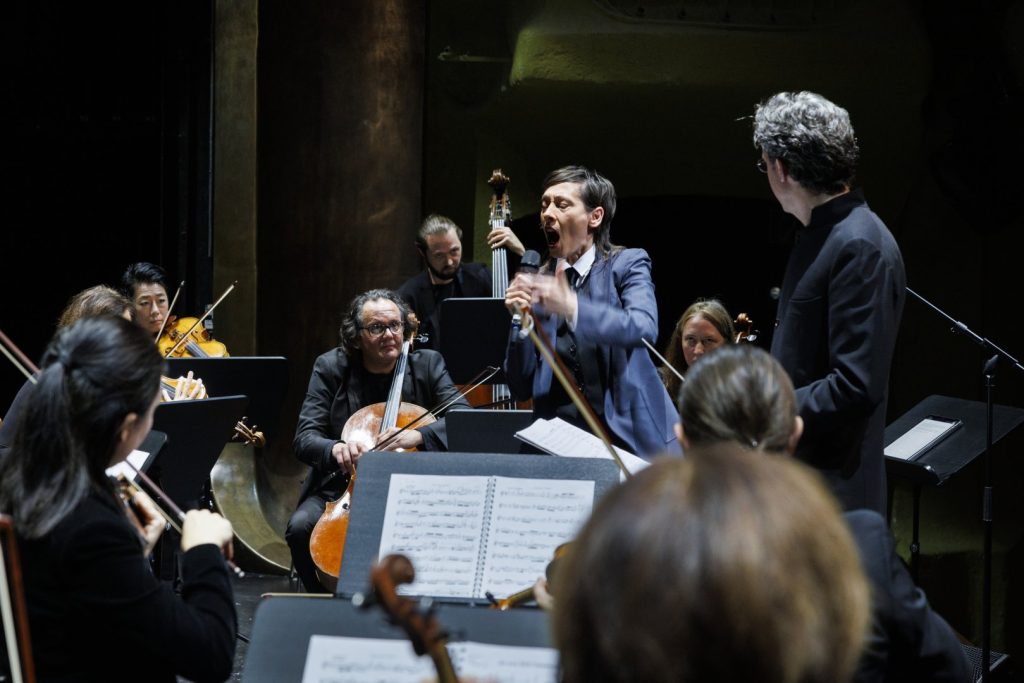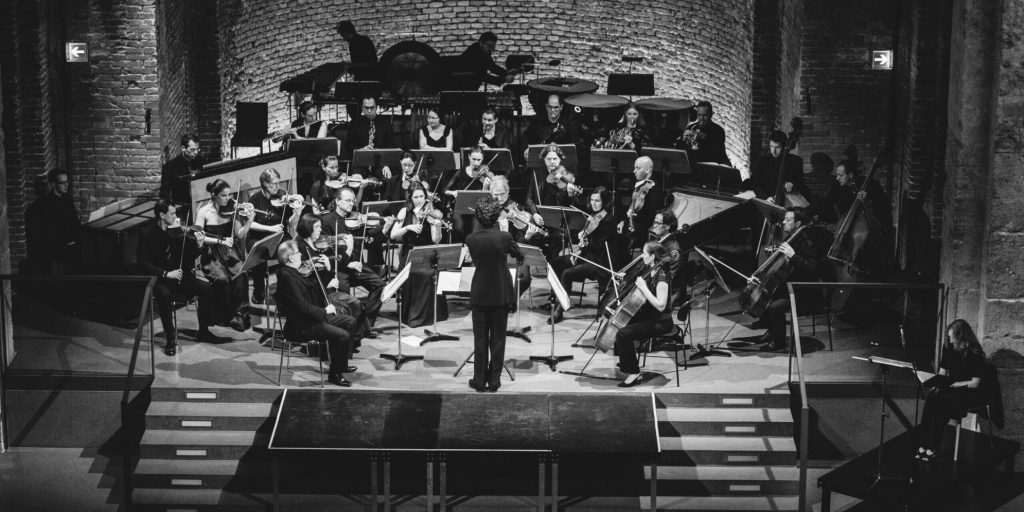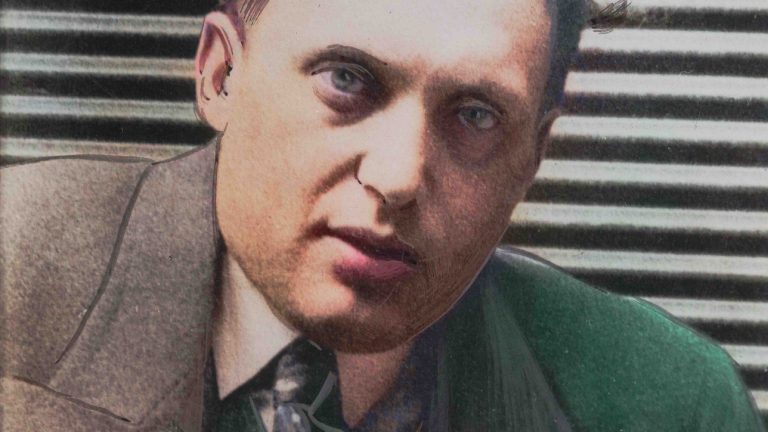In a similar vein to Gidon Kramer’s diligent championing of 20th century composer Mieczysław Weinberg’s posthumous career, the Jewish Chamber Orchestra Munich (JCOM) is busy resurrecting the profile of composer Józef Koffler, whose musical career was vanquished by the Holocaust.
On April 21, the ensemble, led by its founder and conductor Daniel Grossmann, will present two of Koffler’s major chamber works at the Rumbach Sebestyén Street Synagogue under the auspices of OMIKE (National Hungarian Jewish Cultural Association), an organization that is part of the historic synagogue’s ongoing resurrection.
Koffler (1896-1944) was not only a composer, but also adapted works by other composers. JCOM’s concert, entitled “Koffler’s Fate,” will feature Koffler’s 1938 arrangement of J.S. Bach’s “Goldberg Variations,” in addition to his String Trio, Opus 10 (1928) arranged for string orchestra by Nicholas Hersh. Koffler’s fate, like that of most Jews in Europe during the growing fascist regime, was not only the loss of his life and family, but his works and impressive reputation were completely forgotten.
Daniel Grossmann, who founded JCOM in 2005, is by now well-researched in Koffler’s history and his music: “I found his name on a list of Jewish composers who lived during the Holocaust. It was a name I didn’t know, so I started to read about him and listen to his music. He was a professor in Lemberg in the 30s.
His first symphony was performed in London in 1938, so he was really successful. First, the Soviets came to Lemberg, and then the Germans came in 1942 and took his family to a ghetto close to Krakow. Later they closed that ghetto and took the family to the Wieliczka ghetto, where they managed to hide. But in 1944 the Germans found them and shot them somewhere in Poland — no one knows where…

“Because of this horrible history, I think it’s so important to remember his wonderful music and the influence he had on modern Polish music. Even though it’s twelve-tone, it’s so different from Schoenberg’s, Webern’s, and Berg’s works. I can only describe it as emotional music with beautiful melodies, closer to Shostakovich’s style. Most of his pieces had been recorded and performed live. There are also symphonies and a piano concerto — and all twelve-tone!
But no one should be afraid that it’s too modern or dissonant: it’s very emotional and melodic. He has his own style… the Eastern European sound, but I still think it’s a very personal style. The Trio, Opus 10 is considered his most important piece that’s left, since most of his music has disappeared. I think it’s meaningful, important music of the 20th century.”
Born into a Hungarian-Jewish family in 1978, Grossmann’s favorite research has largely been focused on forgotten or suppressed Jewish composers of the 20th century. As a skilled speaker and passionate researcher, he has been presenting these obscure but important composers through expeditions, forums, and touring concerts to to Israel, Eastern Europe, Scandinavia, North America and China.

The JCOM often appears as an ambassador of Jewish culture in guest performances within Germany. As an orchestra for all nations and religions, its musicians come from over twenty countries, and are both Jewish and non-Jewish. In recognition of his tireless work in cultural mediation, Grossmann was awarded the „Pro meritis scientiae et litterarum” prize by the Bavarian Ministry of Science, Research and Art in 2012.
In keeping with OMIKE’s convention that their musical presentations include recited literary works, Jelena Kuljić, an actress from Munich, will speak texts (in German and Hungarian), written specifically for this presentation by Stella Leder, between the eleven selected pieces from the Goldberg Variations.
“Jelena is also a jazz singer, so she will improvise,” added Grossman, “and one of themes she will use is by Weinberg” — another Jewish composer who suffered during this cataclysmic period. Kuljić’s semi-improvised performance in “Koffler’s Fate” serves to evoke the struggle to survive that so many artists faced at that time.
Tickets for the April 21st performance at the Rumbach Synagogue are available on OMIKE’s website.











